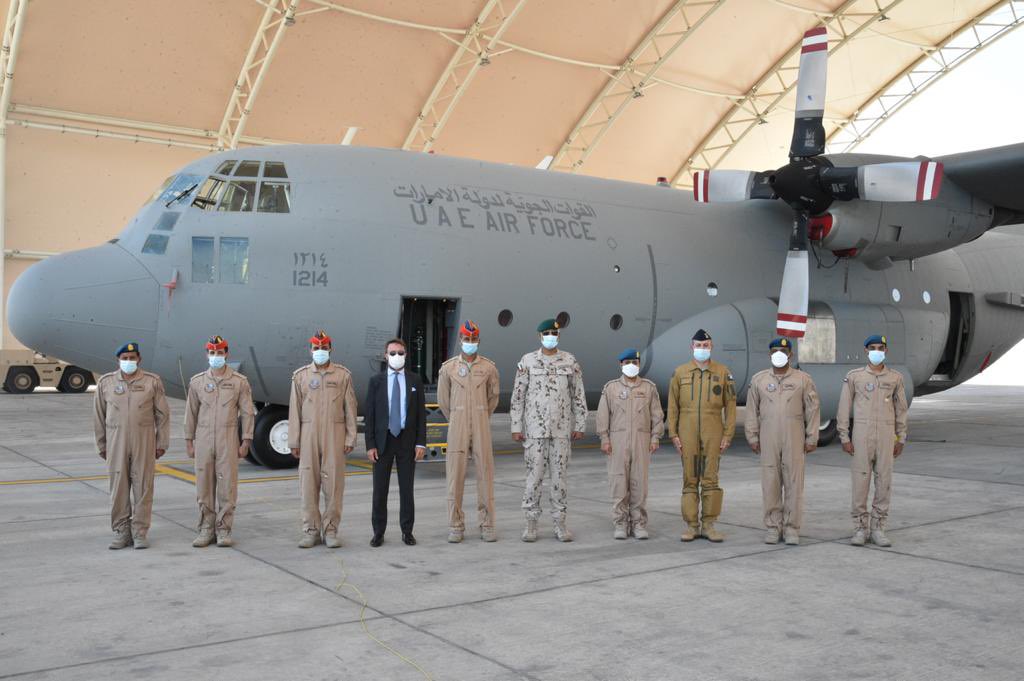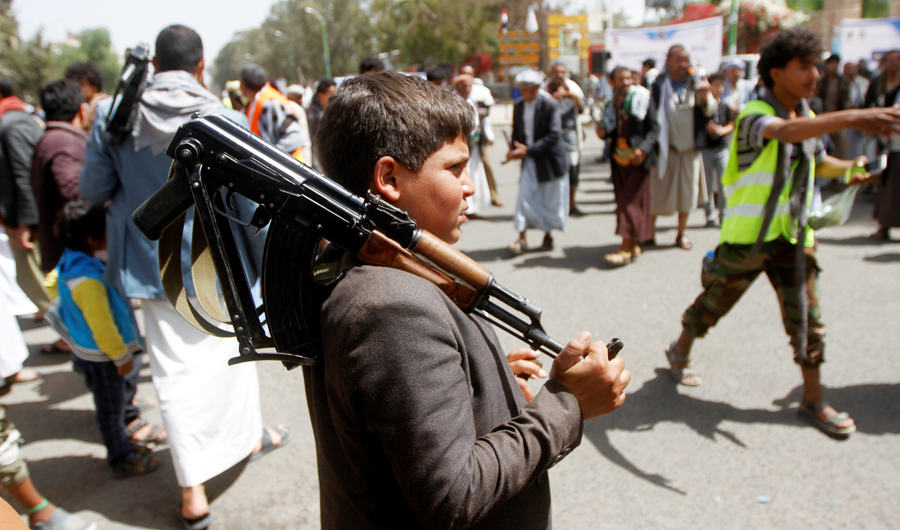AL-MUKALLA: Yemeni government officials and local human rights activists have accused the Houthis of brainwashing and training primary school students for war.
Their criticism came as videos on social media showed pupils wearing military attire and inciting each other to take up arms to fight the Houthis’ enemies.
In one video, filmed at a Sanaa primary school, a child pretending to be a soldier appealed to another child to send him into battle so he could fight the enemies of Islam and Muslims.
“We must sacrifice so that the future generation lives in dignity and honor,” the first child told the second, who was pretending to be the mother. The “mother” later told him to fight with “the House of the Prophet,” a reference to the Houthis.
Officials said the videos showed the scale of Houthi indoctrination and the group’s exploitation of children. They said the videos supported long-held accusations that the rebels were recruiting children to fight in the war.
The Houthis had also made changes to the education curriculum and were turning schools into military training camps, according to Education Minister Tareq Salim Al-Akbari.
“We repeat our condemnation of militarizing schools and students and exploiting educational facilities under Houthi control in their war against the state,” the minister told Arab News, saying the group was seeking to pass its radical ideologies to students through school books and activities. “They have injected sectarian changes in the curricula that have nothing to do with the Yemeni identity and culture.”
Officials said the Houthis had added some chapters to primary education books that glorified the group’s founder, Hussein Al-Houthi, and Shiite figures.
The minister warned that the Houthis were raising a generation of extremists who would pose a threat to Yemen, the region and the world.
“The impact of the Houthi indoctrination of children is disastrous. It brings up a generation carrying sectarian ideology, away from the Yemeni peace-loving identity.”
Activists who saw the videos also expressed concern.
Zafaran Zaid said that schools in Houthi-controlled territories had radicalized children.
“Schools in the areas controlled by the Houthi militia have posed a serious threat to the mentality and psyche of children,” she tweeted.
Ali Al-Bukhaiti, a former spokesperson for the Houthi movement who switched sides and left Yemen, said the Houthis were exploiting schools to spread their ideologies as a way to keep the younger generation under their control.
“Watch how the Houthis cultivate violence in children through school,” he tweeted. “They rig their minds with superstitions to direct them to the front of death.”
Rights groups documenting Houthi abuse said the group had recruited thousands of children since the beginning of its military expansion in late 2014, with hundreds dying in battle last year.
Addressing human rights activists in the central city of Marib last week, lawyer Huda Al-Sarari said that 1,410 children, aged between 10 and 15 and recruited by the militia, had been killed in fighting in 2020.
She added the Houthis had set up 52 military points for indoctrinating and training children, and that they had incorporated more than 40,000 children into the war during the last seven years.




